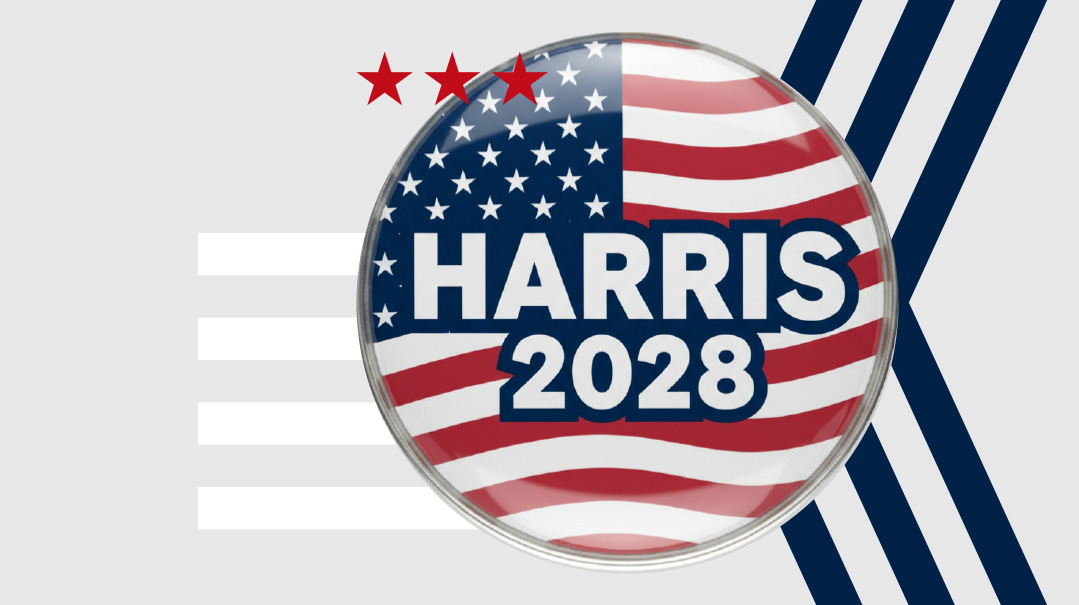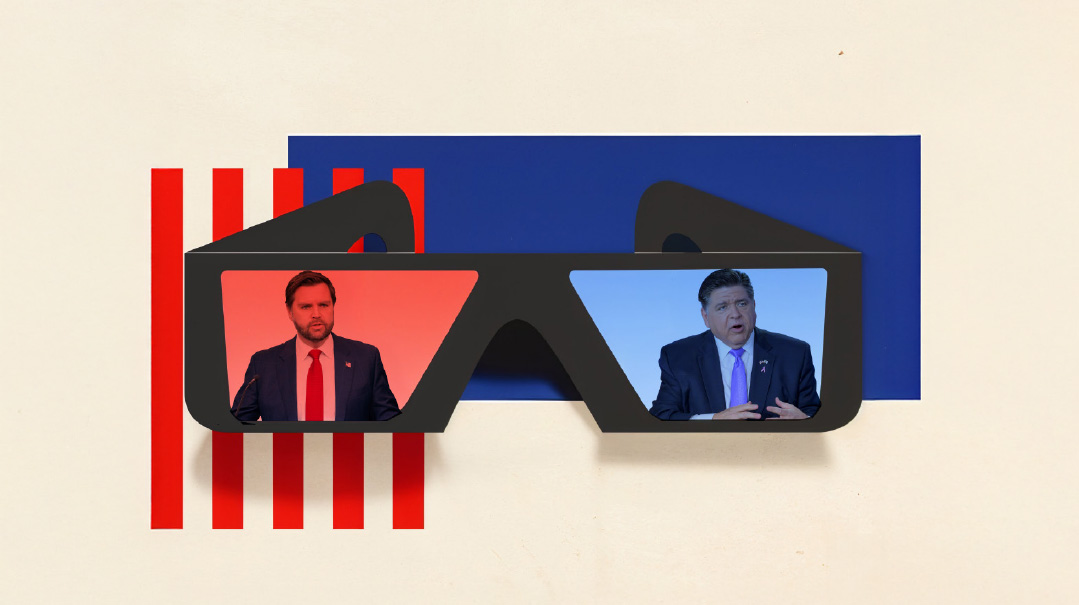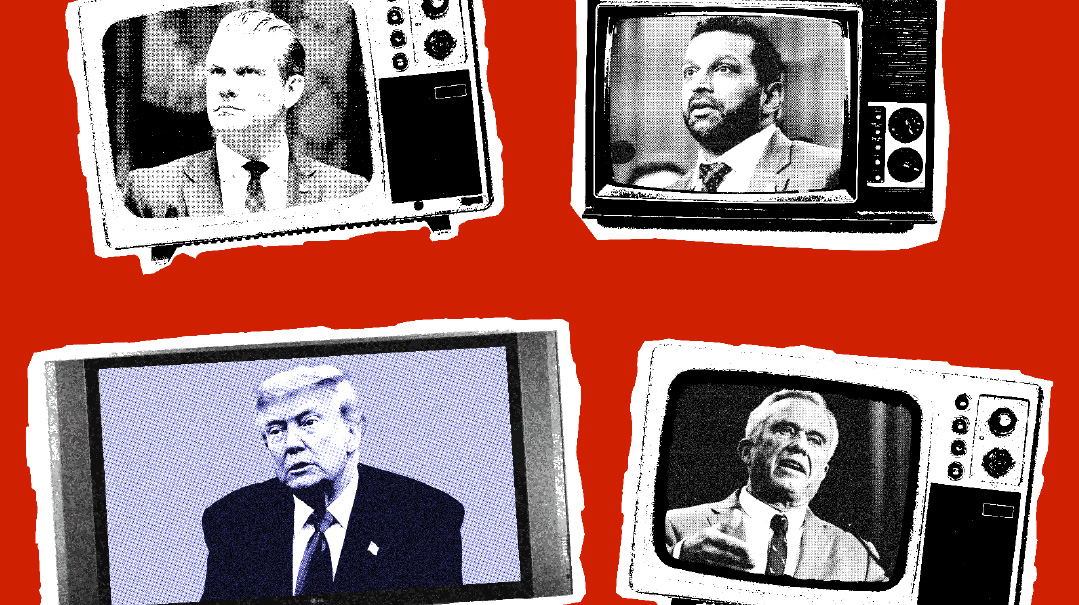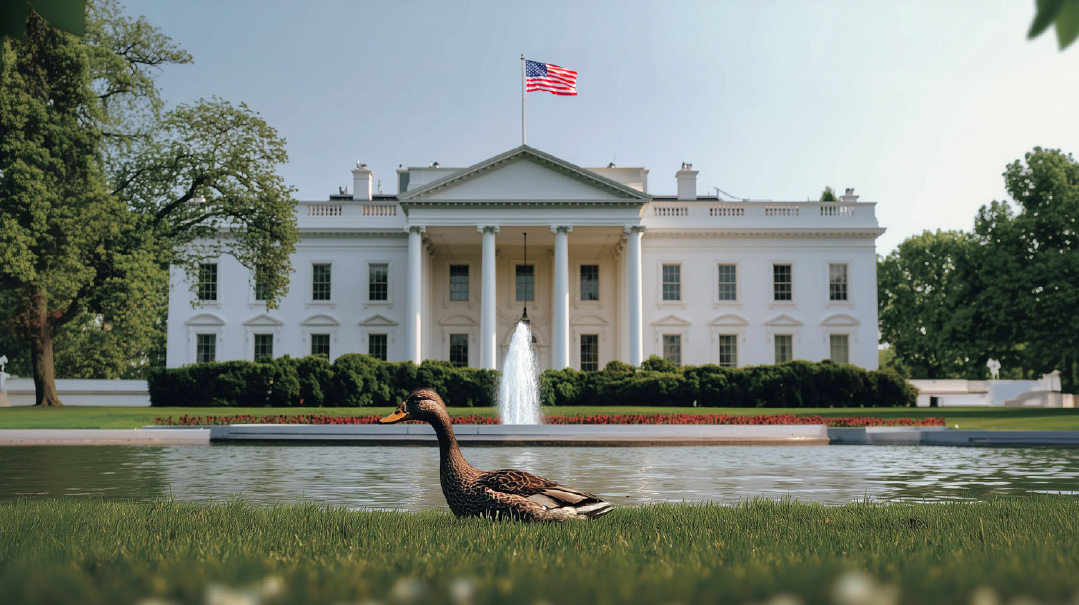Who’s in Charge?

Trump isn’t legally in charge now, Biden is. But in a practical sense, Trump appears to be
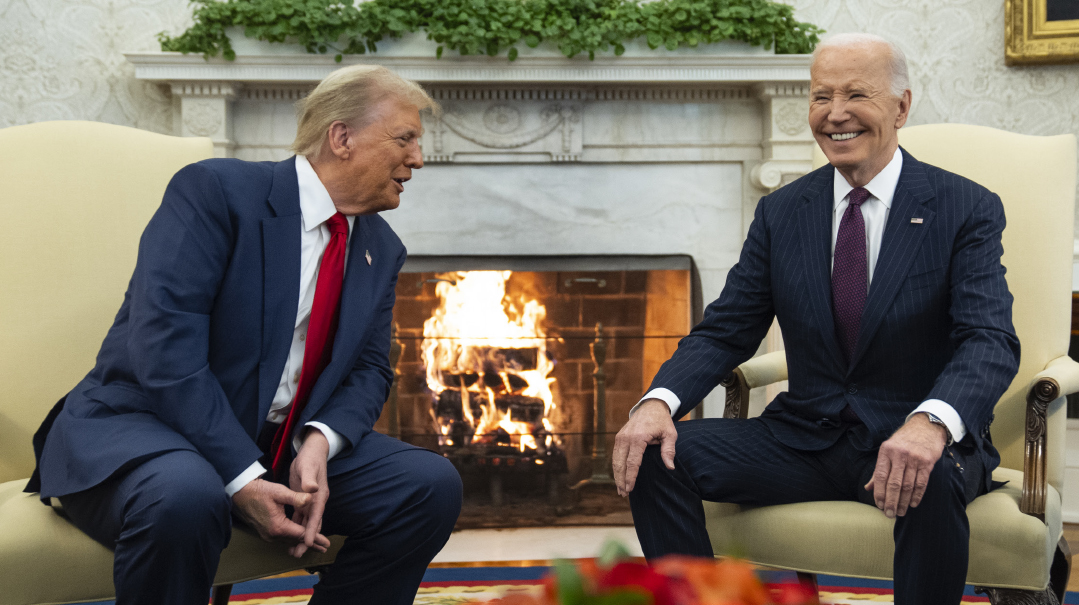
Photo: AP Images
Where did all the W’s go?
When staff members of the incoming George W. Bush administration arrived at the Eisenhower Executive Building near the White House in January 2001, they found that all the standard QWERTY keyboards were missing their W’s.
This prank, committed by outgoing staff from the Bill Clinton administration, illustrates the fraught balancing act playing out right now, when power hangs precipitously between outgoing and incoming administrations.
Who is in charge now? Biden is a lame-duck president; his power is about to come to an end, and his ability to accomplish anything wanes every day, while Trump gets closer to resuming power.
What does it mean for the issues we care about now? Pressing global communal issues like the US-Israel relationship, and pocketbook issues such as taxes, inflation, and the cost of living?
And when will the power dynamic change? Trump isn’t legally in charge now, Biden is. But in a practical sense, Trump appears to be. Trump attended an event in Paris this week and sat next to Jill Biden. Trump is playing a leading role while Biden’s role diminishes.
To understand this dynamic, we have to look at the “power of now” versus “power of then.”
Power of Now
Joe Biden pardoning his son Hunter demonstrates the reality of the power of now. Trump can’t legally offer pardons until he is sworn in. Biden can pardon anyone, and did so without regard for the public reaction to the hypocrisy and nepotism inherent in pardoning his son. With that same carefree nature, Biden is pushing for close to a billion dollars to Ukraine. It’s the same mentality that led to the removal of the keyboard W’s.
Presidents who are finishing their terms can have little concern for normative expectations. It is akin to “senioritis,” the colloquial term used for high school and college students about to graduate with little to lose, and thus pay less and less attention to grades and consequences. This affliction is one reason why the 20th amendment was passed.
The 20th amendment states, among other things, that the “terms of the President and the Vice President shall end at noon on the 20th day of January.” Until this amendment was adopted in 1933, newly elected presidents had to wait until March 4 to assume their duties. Not only did this create an irresponsibly long time for outgoing presidents to execute power but it also impacted critical decisions for incoming presidents.
Imagine being Abraham Lincoln with the Civil War on the horizon and having to wait over 100 days to even begin to act. The 20th amendment removed this quandary that gave lame-duck presidents tremendous power for four long months. Lincoln’s predecessor, James Buchanan, literally watched state after state secede from the Union and did nothing to stop it.
Still, even though the 20th amendment shortened the waiting time from four to two months, certain power dynamics remain.
Power of Then
Some years ago, I was promoted into a job that my predecessor continued to hold during a transition period. Although I did not yet have full responsibility, I found that new colleagues asked for my opinion and direction on a wide range of decisions. There was an assumption and expectation that I held power, despite not actually having full control.
This is what we see happening right now with Trump. He isn’t president yet, but look at everybody treating him like he already is. What else could explain Canadian prime minister Justin Trudeau flying to Mar-a-Lago? At about the same time, Mexican president Claudia Scheinbaum also found time to call Trump. Mexico and Canada aren’t simply sending their best wishes; they are responding to power Trump doesn’t have now but soon will. After Trump declared he wanted to impose tariffs on Mexico and Canada, both countries scrambled to meet with him, despite the reality that only Biden can impose tariffs now.
We will see this dynamic continue to play out as the clock ticks down to January 20, 2025. Every outgoing president has had diminishing power, but Biden’s situation is perhaps unique in that his power has been diminishing ever since he chose not to run for reelection. The concerns over his age have affected his ability to get things done for over six months. One can argue that no lame duck has ever held office as long as Biden.
Navigating Now and Then
This dynamic gives clarity to someone desperately seeking a Biden pardon, or trying to avert a Trump tariff. But what if you have an issue that spans both administrations?
I keep getting this question from people with myriad urgent issues that will bleed into the next year. The issue that is most prominent on the community’s mind is obviously Israel, which requires presidential action both now and later. Resolving an issue that straddles a presidential transition, especially one as delicate as foreign policy, requires a civil working arrangement between the outgoing and incoming presidents. This is easier said than done.
The founders of America set a lousy example. The second-ever presidential transition involved John Adams handing power to Thomas Jefferson. The election was contentious, with little love lost between the two. Relations were so bitter that Adams skipped Jefferson’s inauguration and traveled home on horseback. (Adams and Jefferson eventually patched things up, but not until long after both had left politics.) This type of transition renders problem-solving impossible.
This Biden-to-Trump transition hasn’t descended to that level of acrimony yet. In fact, both sides have made a real attempt at a civil transition, with little in the way of fighting or public attacks. This creates an environment conducive to navigating thorny issues that will cross over the January 20 threshold. Advocates can work with both administrations secure in the knowledge their relationships with either of them won’t be impacted.
Wisely, the Israeli government has been dealing with both presidents, and the climate of civility has led to movement. Biden announced a ceasefire plan between Israel and Hezbollah two weeks ago. Last week, Trump’s Middle East envoy was reported to have been holding high-level talks on a ceasefire and hostage deal in Gaza. This is a reflection of careful navigating between the power of now and power of then.
The Domestic Front
There is a real contrast between foreign policy issues and domestic policy issues. Foreign policy issues simply can’t wait, but most domestic issues can and will. There is no better example of that than what happened in 2016.
When conservative Supreme Court Justice Antonin Scalia died in February 2016 and Obama nominated Merrick Garland to replace him, Senate Republicans refused to confirm him. This, despite an election looming nine months away and a new president taking office in 11 months. Why? Because the parties don’t want to share power. The parties don’t want to cooperate on resolving domestic issues.
Taxes, immigration, and government spending are among the thousands of domestic issues where Biden and Trump have radical disagreements. There is no scenario in which there will be cooperation or even mutual desire to solve these issues.
(Originally featured in Mishpacha, Issue 1040)
Oops! We could not locate your form.


